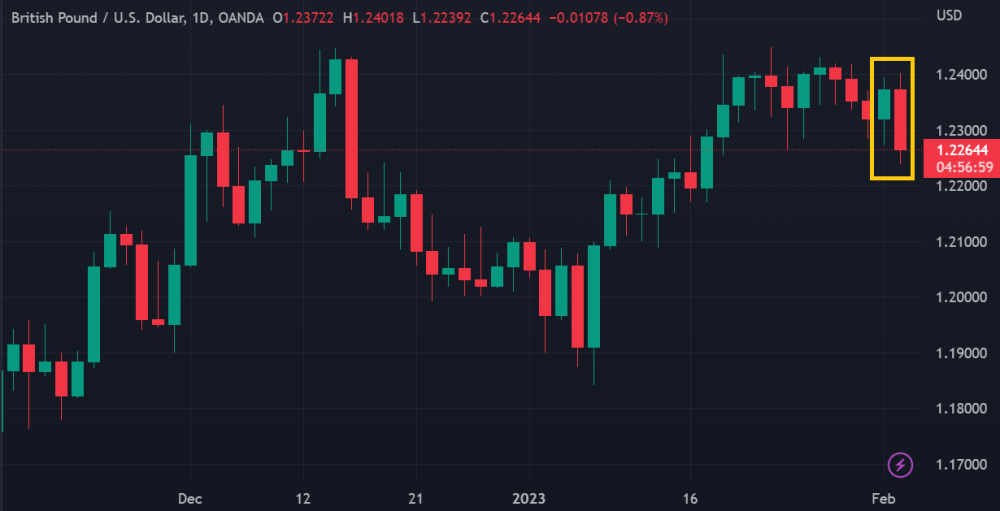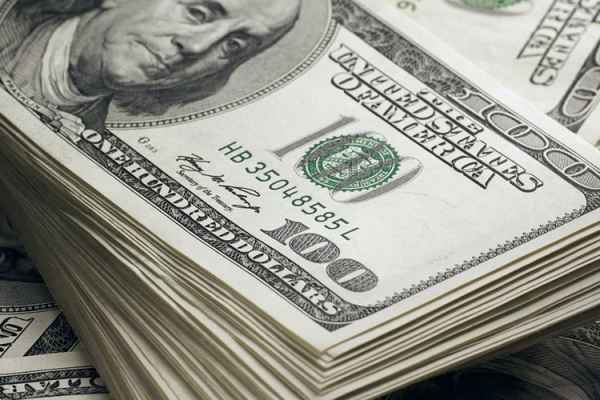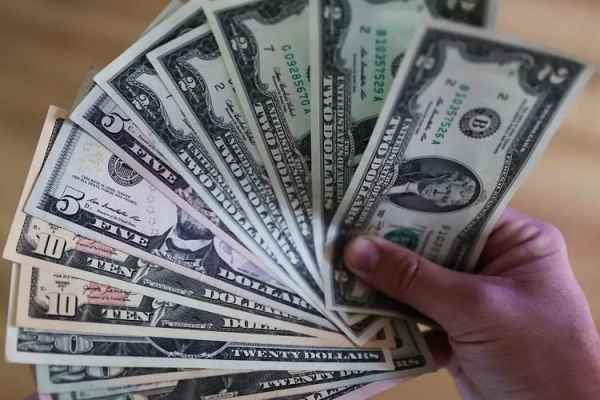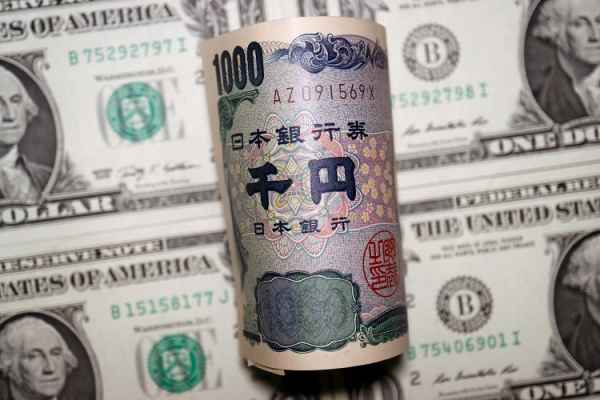The Bank of England (BoE) did not show a firm commitment to continuing the interest rate hike cycle, so the pound sterling fell.
The Bank of England (BoE) is showing the most dovish attitude compared to the other two main central banks, which are both holding regular meetings this week. As a result, the pound sterling became one of the worst-performing major currencies in tonight's New York session, February 2.
GBP/USD lost about 1 percent to hit a two-week low of 1.2239. The EUR/GBP even managed to break above the 0.8950 threshold and score the highest record since September 2022.

Tonight's BoE meeting raised interest rates again by 50 basis points to a level of 4.0 percent, in line with market expectations. Voting results showed seven of the nine members supported a hike, while the other two hoped for a flat rate.
The BoE believes that inflationary pressure is stronger than expected, so there is a risk of further interest rate hikes. However, they failed to demonstrate a firm commitment to continuing the rate hike cycle.
The BoE changed its "will respond decisively" from last month's statement to "if there is evidence of more persistent (inflation) pressures, further tightening in monetary policy will be necessary."
The BoE's economic projections further clarify the central bank's hesitation to raise interest rates. UK GDP estimates will fall "slightly" throughout 2023 and the first quarter of 2024 as inflation and interest rates weigh on society. The inflation rate will also fall to 3.0% in the year to the first quarter of 2024, much lower than the 4.0% rate in the previous BoE projection.
The changes have raised fears that the BoE will raise interest rates by just 25 basis points in March, then end the "rate hike" cycle. Some analysts are even more pessimistic, indicating that the BoE may not raise interest rates again this year.
"One last bank rate hike of 25 basis points at the March meeting cannot be ruled out. But if, as we expect, signs of slowing price increases and accumulating labor market weakness continue to emerge as expected, then the Monetary Policy Committee (the BoE) looks set to keep bank rates at 4% in March and through the rest of the year," said Samuel Tombs, an analyst at Pantheon Macroeconomics.
The pound sterling now tends to be depressed by the bad economic conditions and disappointing interest rate projections compared to its two main rivals, the US dollar and euro. The US Federal Reserve and European Central Bank stand a chance of raising interest rates by more than 25 basis points each at their next policy meeting, although they both issued post-meeting statements that were more dovish than market expectations.

 Dedicated FREE FOREX VPS
Dedicated FREE FOREX VPS Free FOREX Virtual Private Server
Free FOREX Virtual Private Server MT4 Demo Contest, Get $500
MT4 Demo Contest, Get $500 Sign Up for an Account, Claim 60% Deposit Bonus
Sign Up for an Account, Claim 60% Deposit Bonus Free MT4/MT5 VPS 2024
Free MT4/MT5 VPS 2024 Send E-mail and Get Free Merchandise
Send E-mail and Get Free Merchandise $1K Refer a Friend Bonus for Pepperstone Pro clients
$1K Refer a Friend Bonus for Pepperstone Pro clients Maximize Your Earnings with 100% Deposit bonus
Maximize Your Earnings with 100% Deposit bonus Trade to Win, $5,000 Monthly Demo Contest
Trade to Win, $5,000 Monthly Demo Contest Claim 30% + 15% Deposit Bonus from LiteFinance
Claim 30% + 15% Deposit Bonus from LiteFinance






